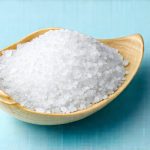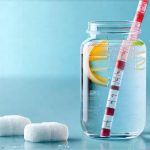That feeling after indulging in an overly salty meal – the thirst, the bloating, sometimes even nausea – is surprisingly common, yet often misunderstood. It’s not simply about “too much salt,” though that’s certainly a component. The body has intricate systems for regulating sodium levels, and when those systems are overwhelmed or disrupted by a sudden influx of salt, it can trigger a cascade of physiological responses that lead to discomfort. Understanding why this happens requires delving into how our bodies process sodium, the role of hydration, and the complex interplay between electrolytes and fluid balance. It’s also important to recognize that individual sensitivities to salt vary considerably; what one person tolerates easily might cause significant distress in another.
The sensation isn’t always immediate. Often, it develops gradually over hours after consuming a salty meal, making it harder to connect the symptom to the source. This delayed reaction is due to how the body attempts to compensate for the increased sodium load – shifting fluids and working to restore electrolyte balance. While occasional indulgence in salty foods typically isn’t harmful for healthy individuals, persistent or severe reactions can signal underlying health concerns or highlight a need to re-evaluate dietary habits. Recognizing these signals and understanding the underlying mechanisms is crucial for maintaining overall well-being. If you notice frequent discomfort, it might be helpful to understand small meal bloating as well.
The Role of Sodium and Fluid Balance
Sodium is an essential mineral, vital for numerous bodily functions – nerve impulse transmission, muscle contraction, and maintaining fluid balance are just a few examples. Our kidneys play a critical role in regulating sodium levels, carefully controlling how much is reabsorbed back into the bloodstream versus excreted through urine. However, when we consume a large amount of salt quickly, it overwhelms this system. The body then attempts to dilute the excess sodium by drawing water from cells and other bodily reservoirs to restore proper concentration.
This rapid shift in fluids is what often leads to many of the unpleasant symptoms associated with high-salt intake. Bloating occurs as extra fluid accumulates in the interstitial spaces (the areas between cells). Thirst arises as a natural response to the dehydration caused by this fluid redistribution, prompting us to drink more water. The kidneys work overtime to filter and excrete the excess sodium, contributing to fatigue and potentially feeling unwell. It’s not necessarily that salt itself is “bad”; it’s the sudden disruption of fluid balance that causes the problem. Sometimes, a change in diet can cause issues; you might find yourself wondering veganism bloating is to blame as well.
Furthermore, different types of salt can impact how we feel. Table salt (sodium chloride) is readily absorbed, while sea salt or Himalayan pink salt may contain trace minerals that slightly alter absorption rates – though the overall sodium content remains the primary factor. Processed foods are often the biggest culprits when it comes to excessive salt intake, as they frequently use sodium as a preservative and flavor enhancer. Recognizing hidden sources of sodium beyond what you add during cooking is key to managing your intake.
Why Do Some People React More Strongly?
Individual sensitivity to salt varies widely due to several factors. Genetics play a role; some people are naturally more sensitive to fluctuations in sodium levels than others. Age also influences our response – as we age, kidney function can decline, making it harder to regulate sodium and fluid balance effectively. Underlying health conditions, such as kidney disease, heart failure, or hypertension (high blood pressure), significantly increase sensitivity to salt and can exacerbate symptoms.
- People with kidney issues may have impaired ability to filter sodium efficiently.
- Those with heart failure often retain more fluids due to reduced cardiac output.
- Individuals managing high blood pressure are generally advised to limit sodium intake because it raises blood volume, further increasing pressure.
Beyond these physiological factors, hydration status plays a huge role. If you’re already dehydrated before consuming salty foods, the impact will be far more pronounced. Adequate hydration helps kidneys function optimally and buffers against the disruptive effects of excess sodium. Moreover, dietary habits influence sensitivity; consistently high-sodium diets can desensitize taste buds and lead to increased tolerance – but this doesn’t negate the physiological strain on the body. You might even experience supplements bloating, too.
The Connection Between Salt and Nausea
While thirst and bloating are common responses to salty foods, some individuals experience nausea or even vomiting. This is often linked to the activation of the autonomic nervous system, which regulates involuntary bodily functions like digestion. A sudden increase in sodium can disrupt digestive processes, leading to feelings of discomfort and potentially triggering nausea. The body perceives this as a stressor, activating the vagus nerve, which plays a crucial role in regulating gut motility.
This disruption can manifest as:
1. Slowed gastric emptying (food stays in the stomach longer).
2. Increased intestinal contractions.
3. A feeling of fullness or bloating that contributes to nausea.
Additionally, high sodium intake can sometimes exacerbate existing gastrointestinal issues like irritable bowel syndrome (IBS) or acid reflux. It’s important to note that persistent nausea after salty foods could indicate a more serious underlying problem and warrants medical attention. Simple strategies like sipping water, resting, and avoiding further food consumption can usually alleviate mild nausea, but severe symptoms require professional evaluation. Sometimes relief comes in unexpected ways – you may find crying relief from bloating after crying.
Hydration Strategies for Salt Mitigation
Preventing the unpleasant effects of salty foods often comes down to proactive hydration and mindful eating. The best approach is to drink plenty of water before, during, and after consuming a salty meal. Don’t wait until you feel thirsty; thirst is already an indicator of dehydration. Aim for consistent sips throughout the day rather than large amounts at once.
Here’s a step-by-step hydration plan:
1. Drink 8-16 ounces of water about 30 minutes before eating salty food.
2. Sip water during your meal.
3. Continue hydrating with another 8-16 ounces of water in the hours following the meal.
Electrolyte-rich beverages (like coconut water or sports drinks – used judiciously) can also help restore balance, but be mindful of added sugars. Potassium is particularly important as it counteracts the effects of sodium and helps regulate fluid balance. Foods rich in potassium, such as bananas, sweet potatoes, and spinach, can also contribute to restoring electrolyte levels. Finally, minimizing processed foods and focusing on whole, unprocessed ingredients will naturally reduce your overall sodium intake and lessen the burden on your body’s regulatory systems. If you are new to probiotics, you might experience probiotics gassiness as well.
Long-Term Implications of High Sodium Intake
While a single salty meal is unlikely to cause lasting harm for most people, consistently high sodium intake can have serious long-term health consequences. Chronic excess sodium contributes significantly to hypertension, increasing the risk of heart disease, stroke, and kidney damage. The persistent strain on the cardiovascular system leads to thickening of the heart muscle and reduced elasticity of blood vessels.
Beyond hypertension, chronic high sodium intake is linked to increased fluid retention, which can exacerbate conditions like edema (swelling) and congestive heart failure. It may also contribute to osteoporosis by increasing calcium excretion through urine. Furthermore, emerging research suggests a potential link between high-sodium diets and an increased risk of certain types of cancer, although more studies are needed to fully understand this connection. The key takeaway is that managing sodium intake isn’t just about avoiding immediate discomfort; it’s about safeguarding long-term health. It’s also worth remembering that quickly eating can contribute to bloating, too.


















